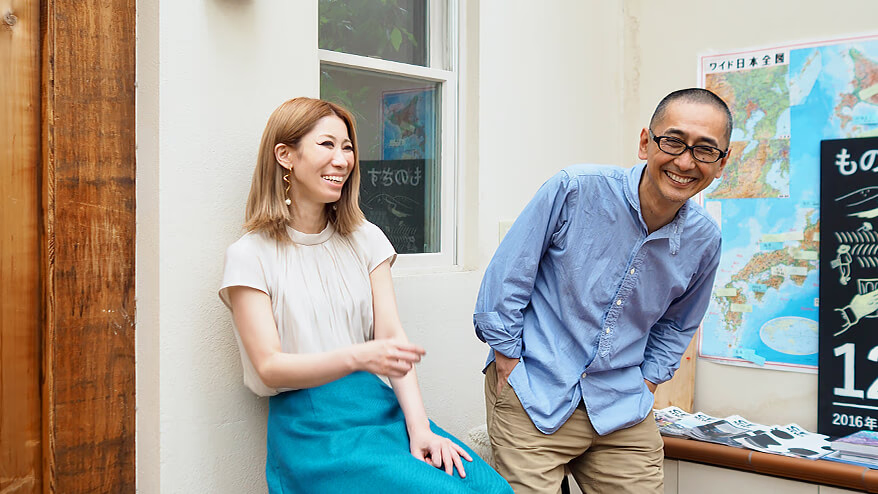Hello, I'm Sugimoto, a writer living in Kyoto.
Recently, I've been really enjoying interviewing everyone at Monosus on a regular basis.
Now, this is the second part of the session "Let's have Mr. Takita and Mr. Nishimura Yoshitetsu listen to your story."
Takita says that the interview for " Freedom and Responsibility: Everyone's Systems and Work Styles Laboratory " prompted him to "re-evaluate his own way of being and his interests." With help from Nishimura, Takita will put into words what "brings joy." It would be great if those who read this article could also reflect on themselves and come into contact with "what brings joy."
Leave any place where you feel like you can't stay any longer
Takita: After you left your first company, you interviewed many people under the title of "work style researcher." How did you feel when you took the first step toward creating your own work, which didn't yet have a shape?
Nishimura: Before I left the company, there were about two years when I couldn't take action on my next move and I couldn't concentrate. So, just before I left, I came up with some golden words of wisdom for myself, like "When some gods are throwing things away, there are other gods who pick things up (so let's throw ourselves away)" and "You can't see what's ahead until you turn the corner ."
I decided to quit when my colleague said, "I'm quitting!" and I was like, "What? Me too." I knew very well that I couldn't stay here any longer, so it wasn't like, "Eh?". When your way of life changes, it's easy to see it as an event of "taking a step forward" or "stepping out," but for me it was like, "There's no development in this pot any more, so I have to get out."
For now, it's out there. But just because it's out there, I don't know if it has increased the possibility. But at least it's no longer the unlikely world I once knew.
Just like a rocket moving forward with the recoil energy from cutting off the booster after it has finished burning , I cut off the unpleasant things I feel and move myself a little towards the wonderful things I feel. Both of these are based on what I feel. At that time, there is no final destination of "I wish I could become like this". In my case, at least.
The essence lies in the "what" part rather than the occupation itself
Nishimura: I think there are people who plan their lives around a certain destination, but I'm not that type of person. In fact, I think it's not so good to have an image of "I want to have this kind of job." As I wrote in "Living with Myself" (Chikuma Bunko), the most important thing is "what kind of job" rather than the job itself.
For example, if you want to become an architect, I think the "what kind of architect do you want to be?" is the real part . If you dig deeper into the "what kind" part, you might not end up becoming an architect, but I think that's fine.
Takita: In my case, I think I should think again about "what kind of designer I want to be" and then pursue that "what" further, and something might become clear.
Nishimura: If you were a designer, there would be a lot of things you could immediately clarify because that's the work you're doing now, so that might be a good thing.
As you grow, you may naturally need a new environment and feel like "I can't stay here anymore." At that time, if you don't feel uncomfortable or at risk in that environment, you may be able to continue growing in the same place.
I talk about this a lot in various places, but I think it's effective to "just go and meet people you're interested in ." The biggest thing is that when you meet that person in person and spend time with them, you get a sense of their existence, like "Ah, it's okay for me to exist in the world like this."
On a more practical level, people you're interested in tend to have a lot of the information you need. They often recommend things like "You should read this book" or "You should meet this person" and they're often right on the money.
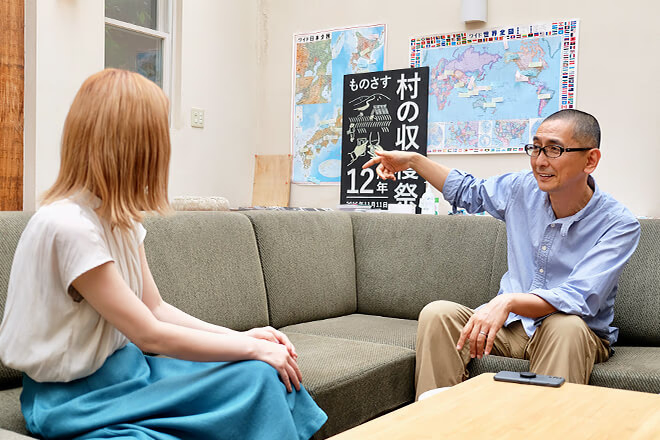
Takita: Going to meet people you want to meet, people you're interested in.
Nishimura: Even though I haven't moved my body out of the pot yet, I feel like I'm starting to change. Then, I can clearly sense that it would be better if I wasn't here, and that's what I experienced.
It is difficult to recognize what you can do naturally, leading to poor progress
Takita: Recently, when someone compliments me, I try to ask, "What did you compliment me on just now? How did you feel about it?" Even if they say, "That was good," I don't really have any idea what was good about it.
Nishimura: "Please tell me more about it" (laughs).
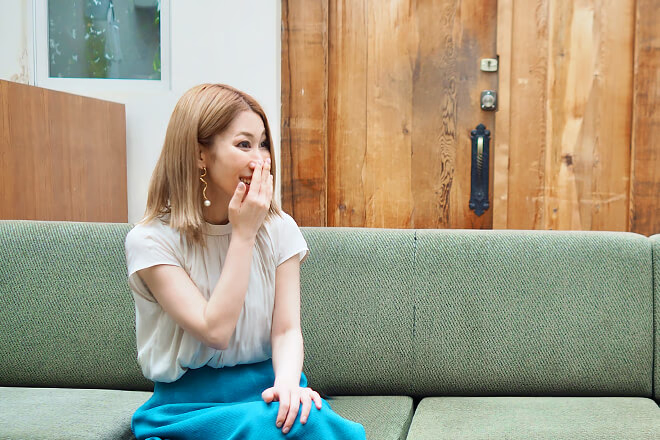
Takita: That's right. Rather than leading the team in general, I like to do the things around me that might be better if I do them. When directing at work, I often feel that the whole thing works better if I place emphasis on supporting the people in charge of the work and connecting the various roles in deciding the direction and steering of the team. That "support" and "connection" may be something that you naturally want to do .
Nishimura: In Japanese, the word "support" means "assistance," "support," or "making it happen." It means connecting the team and keeping the whole in a good state, and doing what is necessary to make that happen.
Takita: Yes. Would that job make you a director?
Nishimura: The director's job is to decide the "direction" and say "it's over there." From what I've heard, it seems a bit more "condition" oriented. Regardless of whether you have a corresponding job function, the point is that Takita's "natural talent" is to sense what is needed and support it, so that everyone can continue to work in good condition ?
Takita: That's right. When you're moving like that, it's ideal to be in good condition and able to function at your best.
Nishimura: Things that can be done naturally tend to stagnate . Because they are not acquired through hard work, the individual is not conscious of them as a skill, and is not able to break them down as a skill. For example, in my case, I can do things like "planning and proposing to everyone" naturally, so conversely, I am stagnate.
I'm 57 years old now, so I feel like I've done as much as I can naturally do. I've done a lot of things, so I think I'm pretty good, but to become a real professional, I think I need to study and relearn a little more . I'm at the point where I'm like, "So where do I go? What do I do?"
I don't know what it's like for Takita-san right now, but it's good that he's asking for more details about the fact that he felt that something he did was good.
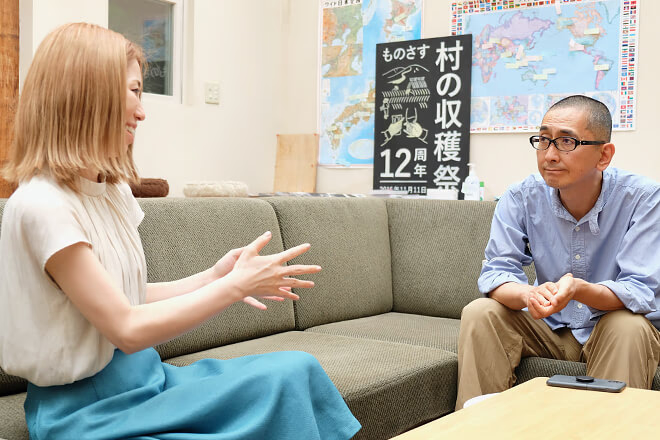
Takita: I've been advised for years, but I've been stubbornly doing what I want to do, avoiding being told, "Maybe this is what you're better suited for?" At this age, I feel like I want to return to my original interests and make it something I'll devote my life to.
When that happened, I started to wonder, "So what was it that I was being praised for?" Perhaps it was because I realized that I needed to get to know myself a little more deeply .
Nishimura: In my case, I don't really believe in what I want to do. That is largely created by things that come from outside. The idea of "I wish I could be that kind of person" or "others will recognize me for being like this" is something that is given to me from the outside. It's quite difficult to adjust myself to that, but I can naturally build on what I already have, and I can do it better than others.
If you can do something for a long time without getting bored, it's natural for you, so you don't think of it as a skill . But when you realize at some point that "Oh, I can do this more naturally than other people," or when people around you praise you and make you happy, you start to see yourself. When you can see things like that clearly, it makes life easier.
Takita: That's right, I think so.
Nishimura: You may or may not find the words to describe it among existing titles. The words that others define as "this kind of job" may suit you. Or, instead of a title, I think there is also a way of life and existence that depends on your track record and the work that comes to you.
Perhaps we need "adventure" rather than "experiment"
Takita: By going outside of where you are now and talking, you can see whether it's a good idea to go outside or not. For me, I've been talking about a lot of things that I've never told anyone before. I feel like the "change" that Nishimura-san spoke about is happening now.
Sugimoto: I think that the interview the other day and today's occasion were about stepping outside of your work environment and relationships with people. You said the other day that you wanted to hear about the bosses and colleagues you've worked with for a long time.
Takita: That's right. I want to think about "what kind of designer I want to be" while also thinking about where I am and who I want to talk to.
Nishimura: It's a small adventure to try talking. As you talk, you end up listening to yourself. Something happens while you're talking, like, "Oh, so that's what I say."
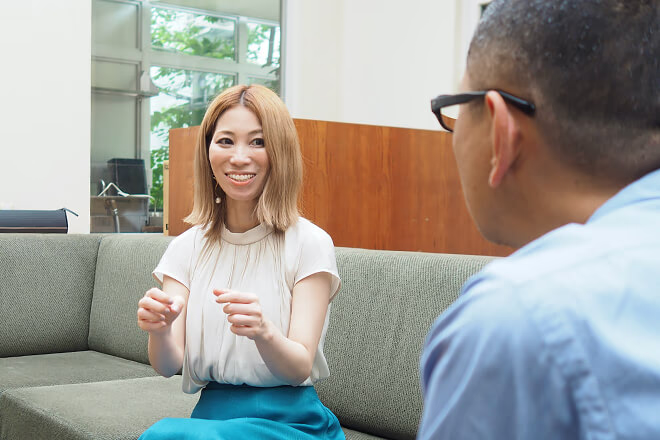
Takita: I think what I need now is not an "experiment" but an "adventure ." An experiment involves making several hypotheses about what results will come back and seeing which one applies, but that's probably not what an adventure is.
Nishimura: In adventure, there may be no hypotheses.
Sugimoto: And the title of your latest book is Let's Go on an Adventure (Kobundo). In this book, you also write, "In the first place, being alive means changing."
Nishimura: Yes. The first article, an interview with the two people from Kobo Maru (a welfare service provider for people with disabilities), might be an interesting read.
Takita: I'd like to read it. I have a lot of ideas now that we've talked. One thing that really struck me was "going to meet people you're interested in," but what really struck me was digging deeper into "what kind of designer do you want to be?" Once I get that clear, I feel like I can see myself a little more clearly. Thank you very much for today.
◆
I think being around someone who is seriously trying to explore themselves makes you want to explore yourself too. I also always have the question "What kind of writer do I want to be?" close at hand, but I've realized that I sometimes neglect to face the question. Asking questions is a way to check where you stand. Now, as I look back on the conversation between Takita and Nishimura, I want to be the person who can take comfortable steps.
